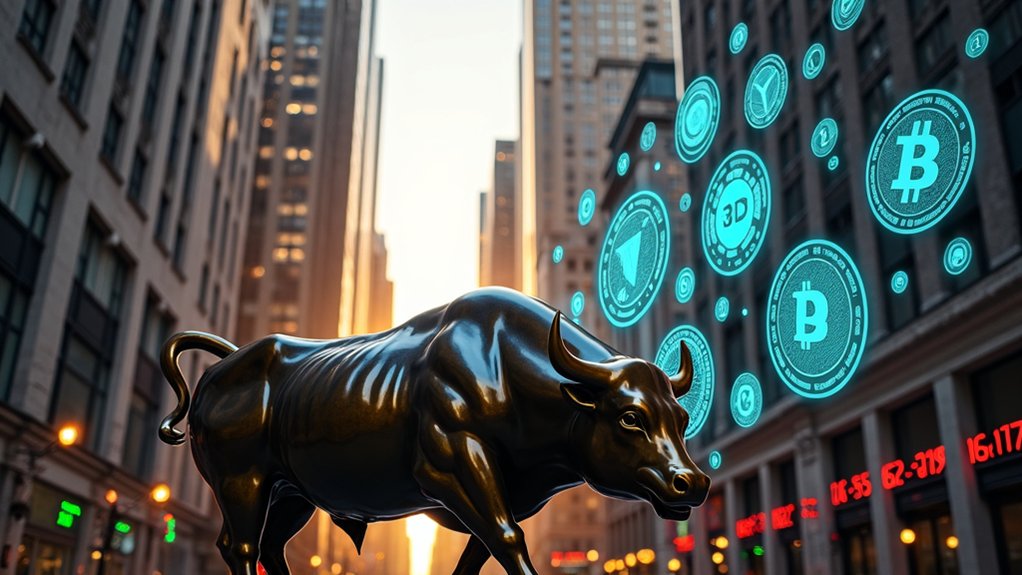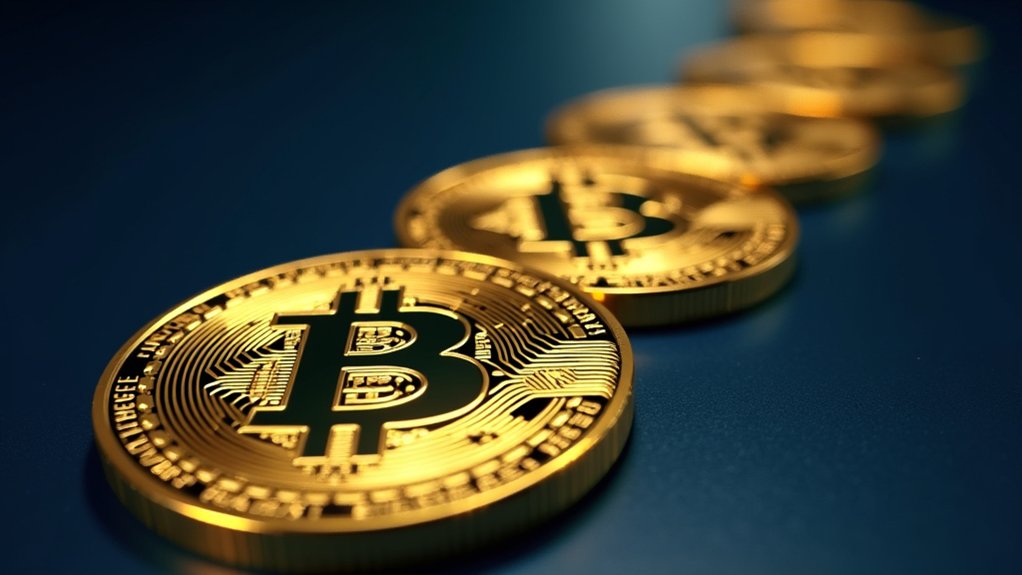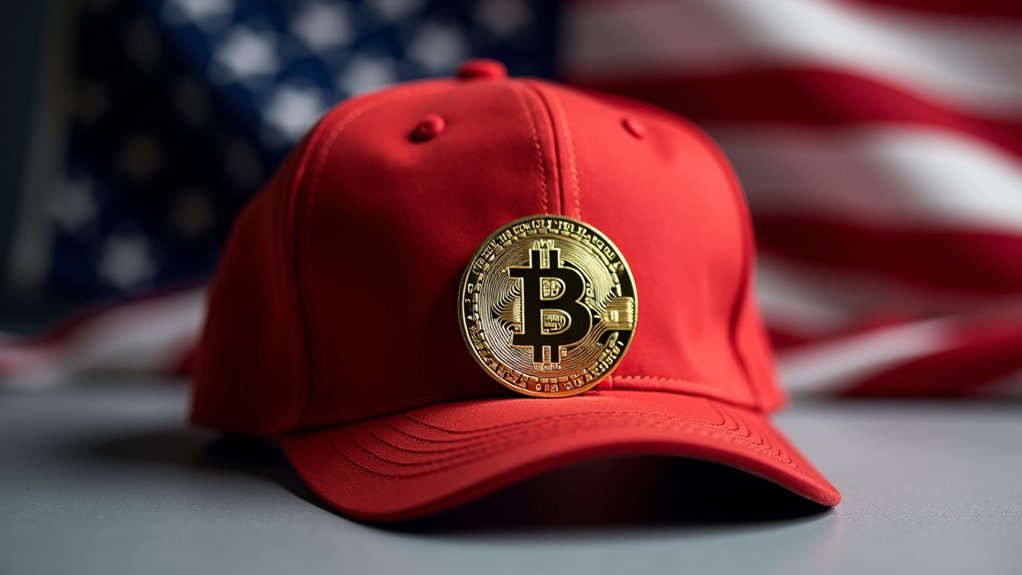As cryptocurrency firms boldly march into Wall Street‘s territory, the once-clear line between digital assets and traditional finance is becoming increasingly blurry. The old guard of banking is watching, probably nervously, as crypto exchanges expand into traditional financial services with surprising speed and determination.
Take Kraken’s audacious move in April 2025. They didn’t just dip their toes in—they cannon-balled into the traditional finance pool by offering access to 11,000 US-listed stocks and ETFs. Perfect timing, really, considering the S&P 500‘s brutal $5 trillion nosedive after Trump’s tariff bombshell. Talk about catching traditional investors while they’re questioning their life choices.
Bitcoin’s relationship with stocks has gotten downright cozy. The correlation between crypto and traditional markets hit levels not seen since 2022. BlackRock’s massive 24 billion dollar investment in Bitcoin shows just how mainstream crypto has become. With Bitcoin maintaining its position as the largest market cap cryptocurrency, traditional investors find it increasingly difficult to ignore. So much for Bitcoin being that rebellious teenager who doesn’t play by Wall Street’s rules. These days, it’s practically wearing a suit and tie, moving in lockstep with the S&P 500 and Nasdaq.
The suits are taking notice. Wall Street’s attitude toward crypto has done a complete 180 since Trump took office. They’re not just warming up to crypto—they’re charging headfirst into it. Major banks are snapping up crypto firms like they’re Pokemon cards, and blockchain technology is becoming their golden ticket to 24/7 stock trading. Traditional investment platforms like eToro and Robinhood have embraced crypto trading offerings to meet growing demand.
Bitget CEO Gracy Chen called it a “growing synergy,” but let’s be real—it’s more like a full-blown marriage of convenience. Coinbase’s Brian Armstrong isn’t being subtle about his ambitions either, practically shouting from the rooftops about modernizing the global financial system and getting more world GDP onto crypto rails.
The crypto world’s expansion into traditional finance isn’t just strategic—it’s survival instinct at its finest. In today’s volatile markets, isolation is about as smart as bringing a knife to a gunfight. The future of finance isn’t about crypto versus traditional banking anymore. It’s about who can adapt fastest to this weird new hybrid world we’re creating.





